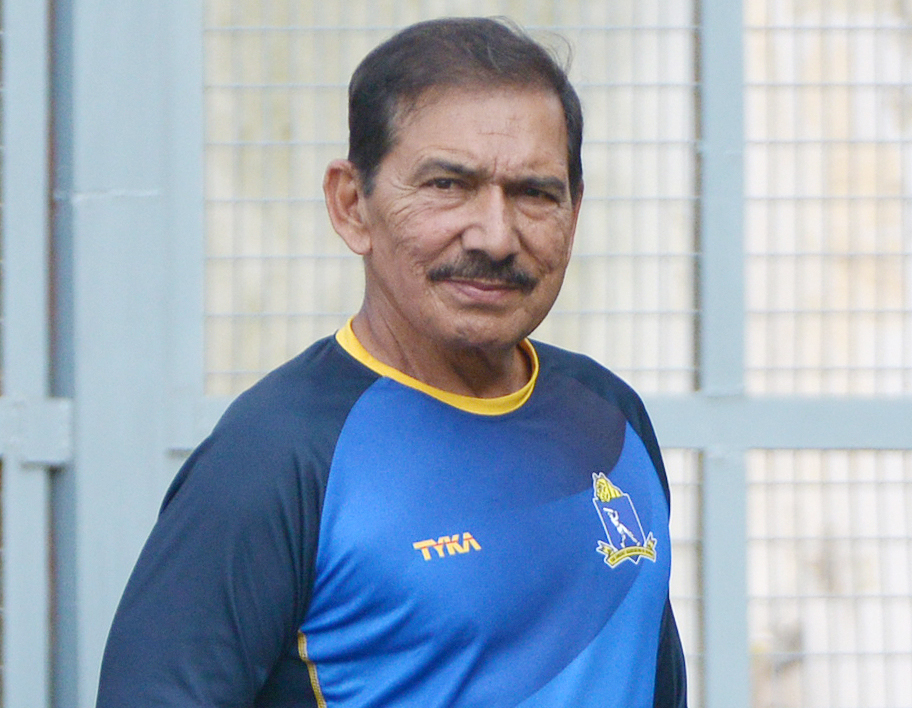Arun Lal is not only familiar with the battles on the cricket field, he knows a thing or two about the struggles off it as well.
Lal feels that while on the field cricket’s nature of being a “one-ball game”, especially for the batsmen, grills a player every now and then, beyond the boundary it’s the societal taboo in India about mental health that stops sportspersons from seeking professional help.
India speedster Mohammed Shami’s recent revelation that he thrice attempted suicide has set off talks on the issue of players’ mental health once again.
Lal, a former India batsman and the current head coach of Bengal, has himself fought it out with life, winning his battle against cancer not many years ago. At 64, he is still going strong and places utmost importance on fitness, both of the mind and the body.
“I remember I went through a lot of trauma in cricket. It’s not an easy thing to handle. There is a lot of pressure and that takes a toll,” Lal told The Telegraph on Monday.
“To speak of Shami, he went through other personal problems too. But in general, fear of failure and not being able to perform according to expectations despite having worked so hard tends to raise these (mental health) issues.
“I guess that’s the pressure in every sport. However, in cricket, it’s more because it’s a one-ball game, especially for the batsmen who are under a lot more pressure than the bowlers. You can be run out, make a mistake yourself or the umpire can even err. A lot of things may happen, and then you lose confidence,” Lal explained.
Mental well-being is as important as physical fitness to do well in cricket, Lal said.
“I have always believed that this game is more mental than physical. Yeah, you do need to strengthen your physical side, but when you become stronger, you start conditioning your mind as well. That’s the idea.”
Lal feels that the players’ hesitation to express themselves when going through a mental crisis has more do with the fear of being labelled weak and of being ostracized by sections of the society.
“Thinking how the society will respond to those issues also plays a part. It’s not a common thing for someone in India to visit a psychiatrist. There’s a kind of taboo attached to it.
“But it’s very common overseas. In a job, you are even advised to meet a psychiatrist if you face any particular problem or also before you have joined.
“In India, we are a lot more family-oriented and thus get a lot of support from our family members, immediate family or friends and neighbours. We Indians get a lot more mental support that way,” he said.
The Indian society’s outlook towards individuals seeking psychiatric help should change, Lal agreed, but added: “Here, in India, the job of a psychiatrist is also done by your mother, father and other family members… Even friends or your coaches.
“So you are never that lonely, which is not quite the case for those abroad. You hardly have anyone to talk to or express your feelings.”
VVS Laxman, batting consultant of the Cricket Association of Bengal’s Vision Project, has also touched upon the mental health issue during his online classes so far with the Bengal batsmen.
“We have had two (online) sessions so far. The rest will take place when VVS comes here post lockdown.
“He has discussed that topic. He spoke about how to handle situations, what happened last season and how the guys need to cope with non-performance,” Lal said.
Under Lal’s guidance, Bengal had a remarkable Ranji Trophy campaign in the season gone-by, reaching the final before losing to Saurashtra.
Lal said that he was also open to the idea of Reena Kaul, the sports psychologist from SAI appointed by the CAB to speak to players of the Bengal senior women’s and boys’ U-16 teams, interacting with the Abhimanyu Easwarans and Manoj Tiwarys, if required.
“I would always welcome such interactions. In any case, whichever way we can make a contribution that leads to performance enhancement and reduce the depression or stress associated with performance or lack of it, that’s always a plus point,” Lal signed off.











